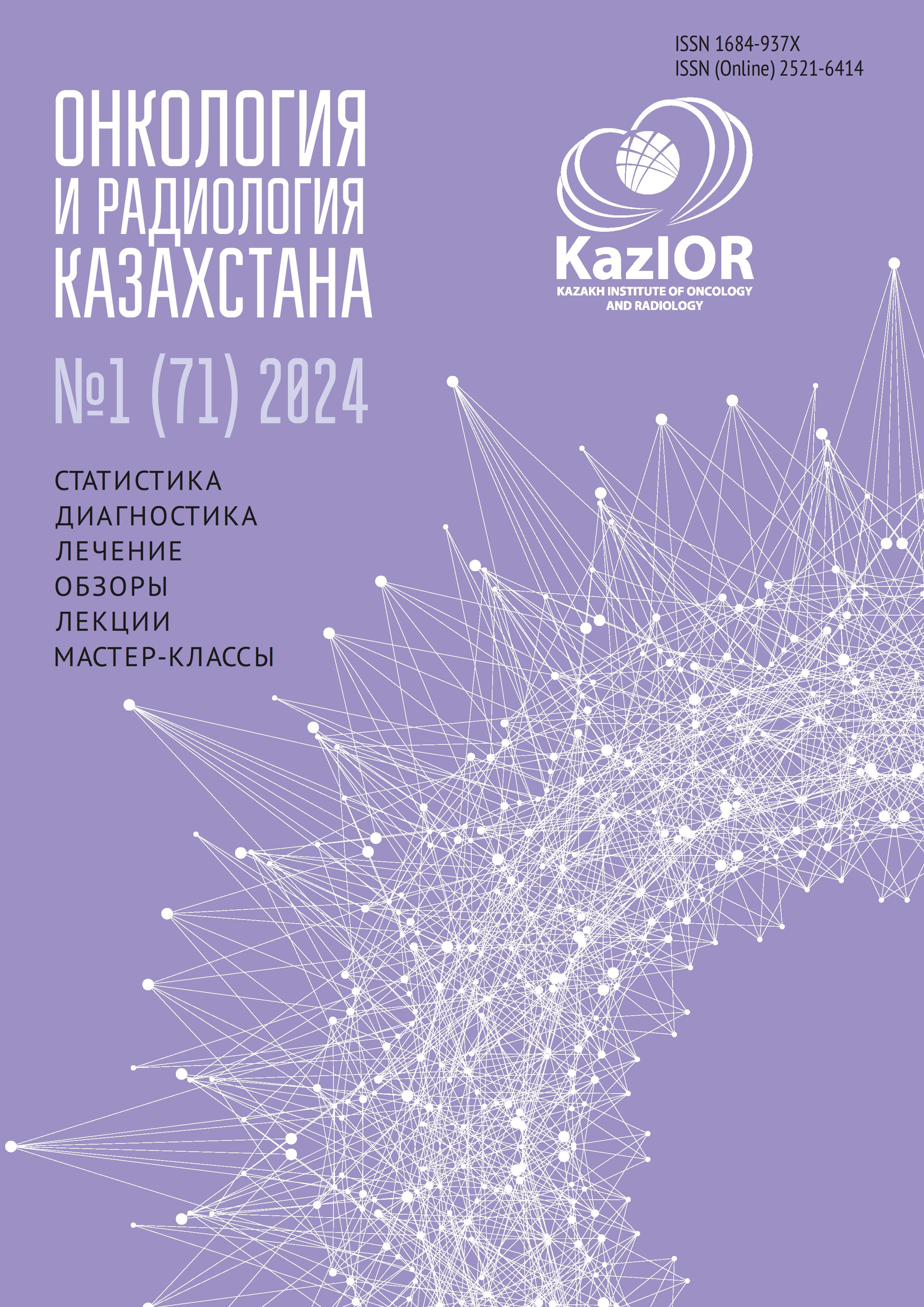Хирургиялық және гормональді емнен кейінгі ерте эндометрий ісігі бар жас әйелдерде аналық безді сақтаудың өзектілігі: әдебиеттерді жан-жақты шолу
DOI:
https://doi.org/10.52532/2521-6414-2024-1-71-57-64Кілт сөздер:
Аналық безді сақтау, эндометрия ісігі, аурусыз өмір сүру, лимфаденэктомия, менопауза алдындағы әйелдерАңдатпа
Өзектілігі: Дәстүрлі түрде, онкология қоғамының мәліметі бойынша, хирургиялық емдеуден кейін ерте сатыдағы эндометрия қатерлі ісігі бар жас әйелдерде аналық безді сақтау дәстүрлі түрде асқынулармен байланысты болды. Дегенмен, соңғы рандомизацияланған сынақтар басқа перспективаны ұсынады.
Зерттеудің мақсаты – ерте эндометрия ісігін гормональді және хирургиялық емдеуден кейін жас әйелдерде аналық бездердің сақталуына байланысты асқынулардың, атап айтқанда қайталанудың пайда болуын мұқият зерттеу үшін әдебиеттерге кең шолу жасау.
Әдістері: Зерттеуге соңғы 10 жылда толық жазылған мақалалар кірді. Біз келесі дерекқорларды жан-жақты іздеу арқылы зерттеулерден тиісті бақылауларды анықтадық: PubMed, Medline, Embase және Cochrane кітапханасы. Іздеу стратегиясы эндометриялық қатерлі ісікке (менопауза алдындағы кезең, жас әйел, эндометрия ісігі, карцинома, эндометриялық ісік, ерте кезеңі және емдеу, аналық безді сақтау) қатысты терминдерді қамтыды. Зерттеу жүйелі шолуларға арналған PRISMA нұсқауларына сәйкес жүргізілді.
Нәтижелері: Барлығы алынған мәліметтер негізінде 178 мақала зерттелді, оның ішінде 111 мақала (әдебиет шолулары және мета-талдаулар) (62%) аналық бездердің сақталуы жағдайын сипаттады. Атап айтқанда, жасы (p<0,0001), диагноз кешігіп қойылған жылдары (p=0,03), Орталық және Оңтүстік Еуропа мен АҚШ-та тұру (p=0,02) және Азия елдеріндегі төменгі дәрежедегі ісіктер (p<0,002) сияқты факторлар әйелдердің қалауымен аналық безді сақтаумен байланысты болды.
Бұл зерттеуде нәтижелер әсіресе сәуле және гормондық терапия алған әйелдерді алып тастағаннан кейін де тұрақты болып қалды.
Қорытынды: жүргізілген әдебиеттік шолу мен мета-талдаулардың нәтижелері екі жақты сальпинго-оофорэктомия жасалынған науқастармен салыстырғанда IA сатысы мен аналық безі ішінара II сатысы кезеңдегі консервациядан өткен пациенттер арасында рецидивсіз өмір сүрудің статистикалық маңызды айырмашылығын көрсетпеді.

